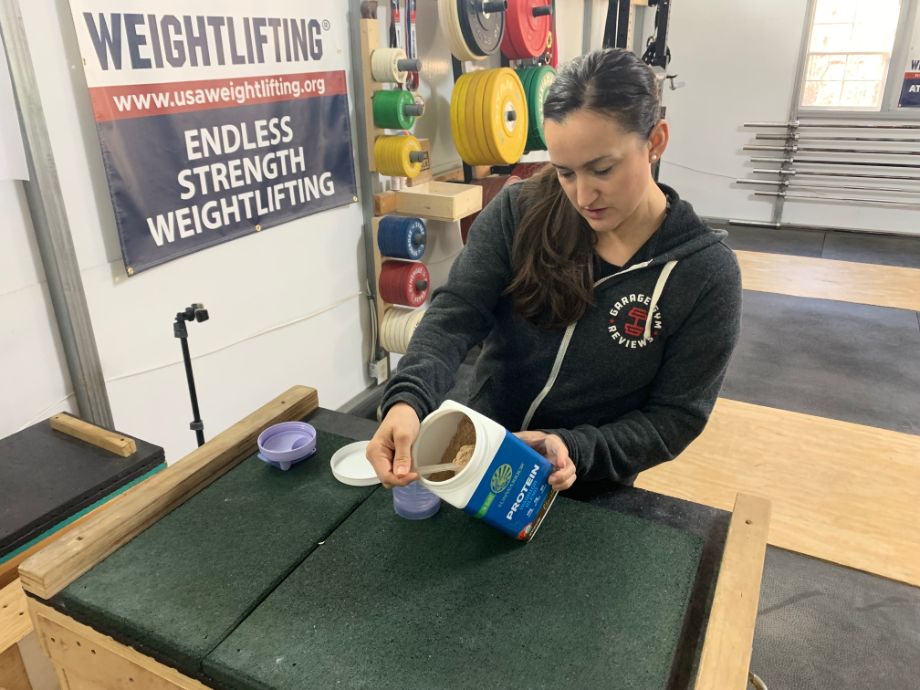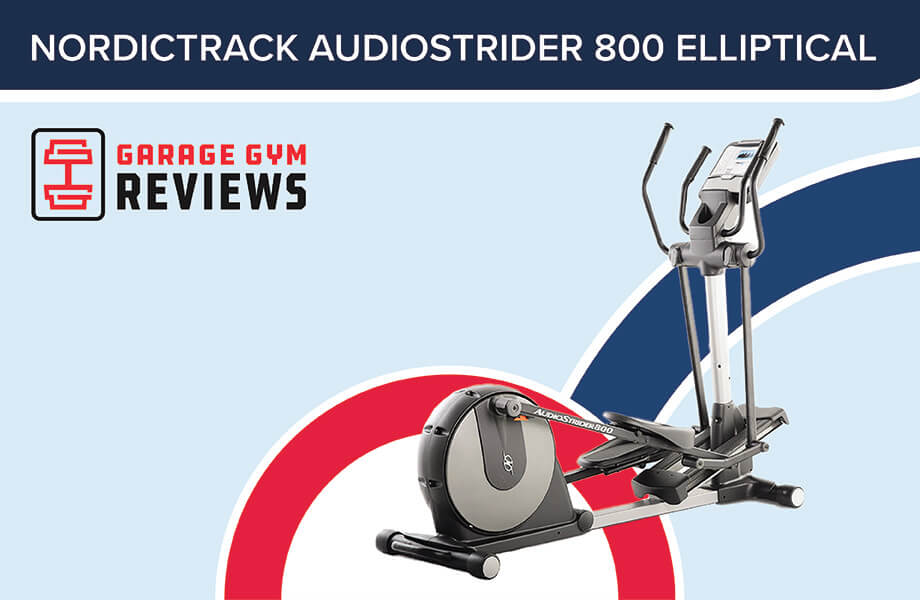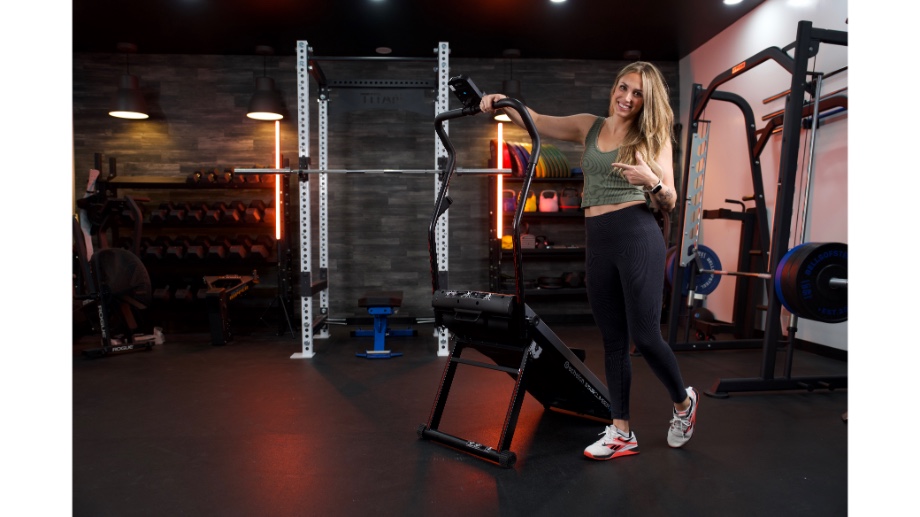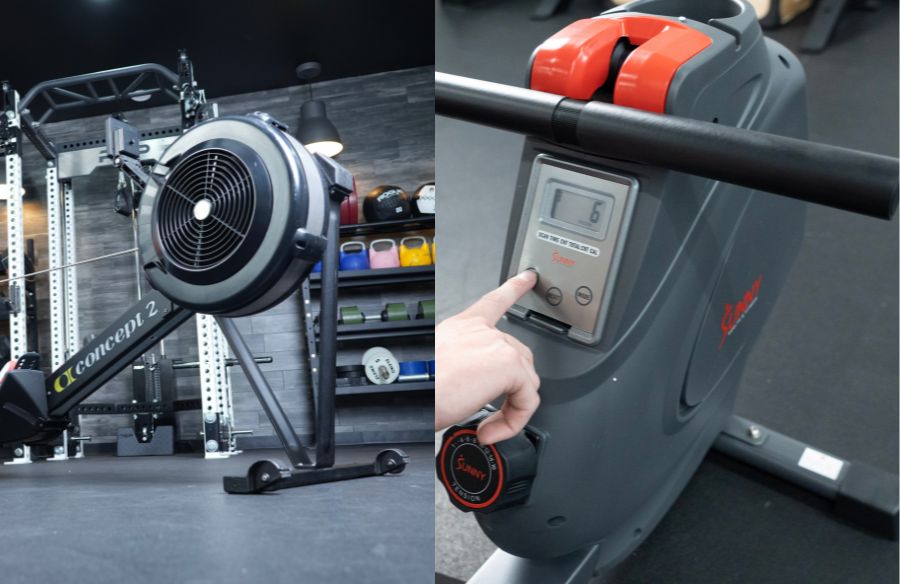There is a dizzying amount of protein powders out there. With so many types, brands, flavors, and forms, it can seem overwhelming to determine what to look for in protein powder. Whether you’re trying to get enough protein for weight loss or weight gain, protein powder can make your life so much easier. However, you need to know what type to get and when to take protein powder for the best results.
So, let’s talk about the most popular types of protein powder there are out there, things to look for while you shop and things to avoid. Additionally, I’ll discuss the differences between milk protein, animal-based protein, and plant-based protein powders so you can select a product that suits your dietary preferences and sensitivities.
Medical disclaimer: This article is intended for educational and informational purposes only. It is not intended as a substitute for medical advice. For health advice, contact a licensed healthcare provider.
Whole Foods vs Protein Powder
As a dietitian, I would be remiss if I didn’t kick this off by telling you that whole foods should always be the priority over protein supplements. Protein powders are designed to provide you with one macronutrient: protein. Therefore, it does not provide the vitamins, minerals and fiber you can get from whole food sources of protein.
You should be aiming to get enough protein from high-protein foods first, and if that is too difficult to meet your needs, use protein powder to fill the gaps. It’s true that, compared to food, protein powder is an affordable (about $1 per serving) and convenient way to boost high-quality protein intake conveniently. It should only be used to supplement; however, not to make up the bulk of your protein intake.
RELATED: How Much Protein Do I Need?
How to Find The Best Protein Powder for Your Needs
Finding the best protein powder isn’t as simple as snagging the flashiest label you see online or lining the shelves at your local supplement store. Some are great; others are downright trash (Yeah, I said it). So, you need to know which one is going to give you the best value.
1. Minimal Ingredients
At the end of the day, you’re paying for a protein supplement, so the best protein powder should be mostly protein. Excluding mass gainers, which add fillers to boost the calorie content, protein powders may add cheap ingredients such as milk solids, psyllium, and added sugars to pad the weight. Read the ingredients list to ensure that what’s included is contributing to the overall value of the protein powder.
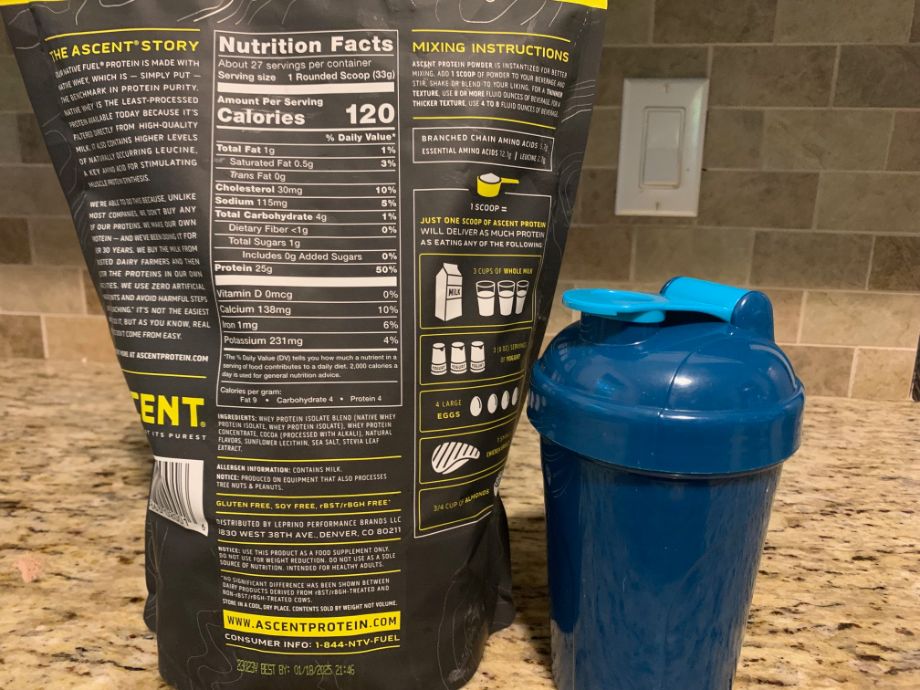
2. Complete Amino Acid Profile
Ideally, you want a protein powder with all the essential amino acids (EAAs), as the body cannot make EAAs on its own, and we have to get them from food. These protein sources are called complete proteins, and, ideally, protein supplements are complete so they can mimic the high-quality protein from whole foods. EAAs are also critical to proper muscle growth and to maintain muscle mass1.
For example, whey, casein, and egg protein powders are all complete protein sources because they contain all nine essential amino acids. Plant-based and collagen protein are incomplete because they lack those essential aminos (particularly methionine). However, plant protein can be mixed, such as a blend of pea and rice protein powders, to achieve complete status.
3. Find Your Favorite Protein Powder Type
The type of protein powder you choose depends on your body composition goals, if you have lactose intolerance, or don’t eat protein from animal sources. Let’s talk about the most common types and what they can offer you.
Whey Protein
Whey is a byproduct of cheese production that used to be discarded as waste. However, once it was discovered that whey was loaded with high-quality protein, it’s now the most widely used protein powder.
RELATED: What is Whey Protein?
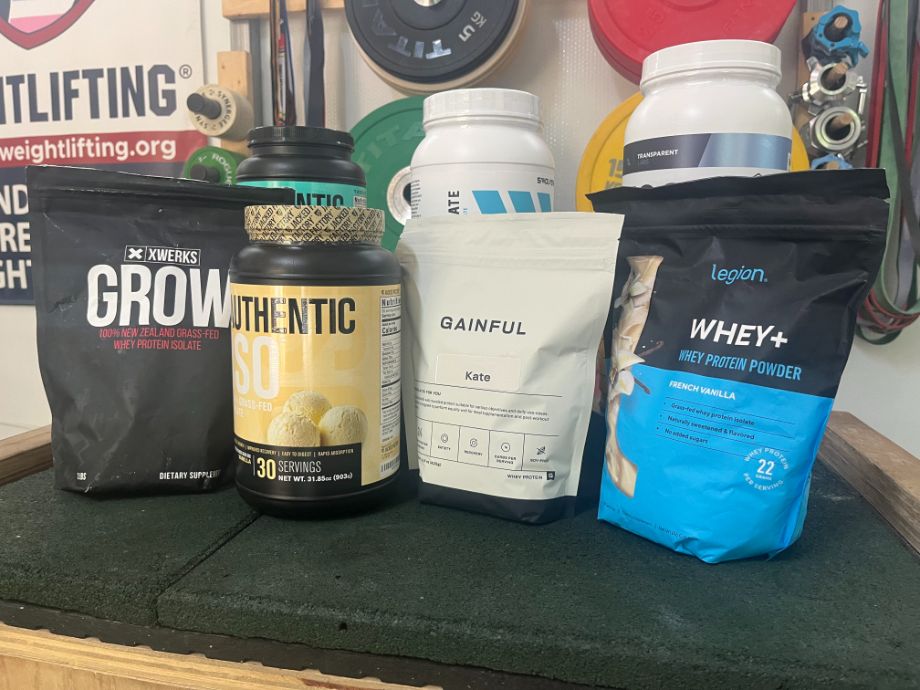
One reason for its popularity in the fitness world is that it’s one of the richest sources of leucine, an amino acid that is critical2 if you want to build muscle. It’s also fast digesting, making it an efficient tool for quick recovery post-workout due to the huge spike in amino acids it delivers to the blood.
Casein Protein
Asking yourself what is casein protein? Well, we all know that milk has protein, right? Well, that protein has a name: casein. When compared to whey, it has similar muscle-building effectiveness3. However, the key difference is how casein is absorbed.
Casein digests and absorbs much more slowly than whey, which isn’t great for fast recovery. However, recent science has shown that having 40 grams of protein from casein before bed following a nighttime weight training session can help increase recovery4 by giving the muscles a steady dose of amino acids overnight.
Pea Protein
Pea protein isolate, like whey, digests well and has a surprising amino acid profile that is high in leucine. This is likely why studies show it performs similarly to whey protein powder5 in the muscle-building category.
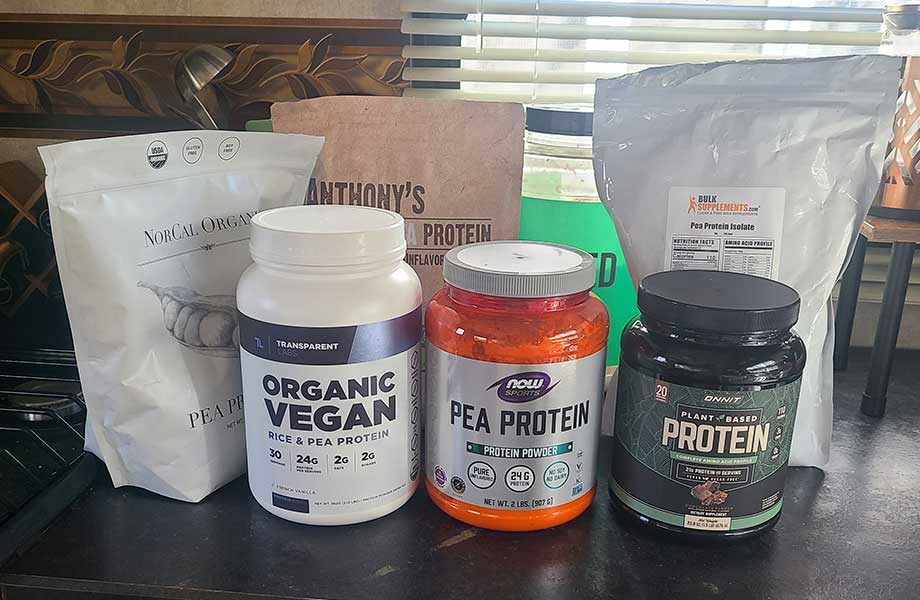
RELATED: Pea Protein Benefits
However, like most plant-based protein powders, it does lack a good amount of methionine, an essential amino acid found in animal products.
Soy Protein
Some people, especially men, are afraid of soy protein as they fear that it’ll increase their estrogen levels. That said, soy consumption does not actually affect your hormones6, according to numerous comprehensive studies. So, how does soy compare to whey? Soy protein was reported to be less effective7 than whey protein at increasing muscle mass after workouts. That said, it’s still a good alternative for those who need a protein supplement but have allergies or dietary restrictions.
RELATED: Best Soy Protein Powder
Other Plant-Based Protein
Soy isn’t the only plant-based protein on the scene; rice protein and hemp protein are two other common types of plant-based protein powders you’ll often see on the label.
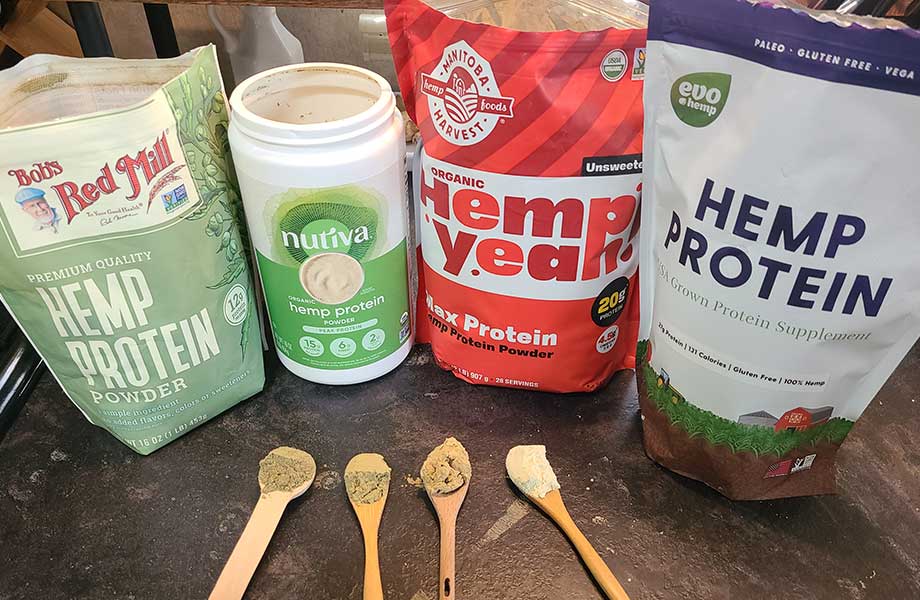
Plant-based protein, whether it’s found in food or supplements, contains essential amino acids in much smaller amounts than protein derived from animal sources. So, one can get a more favorable amino acid profile by choosing a blend of rice and pea proteins, as they complement each other; for example, rice protein has the amino acids (like methionine) that pea protein is missing. Thus, blending the two makes a complete protein.
RELATED: Best Vegan Protein Powder
Hemp protein, however, is a pretty subpar source compared to the other plant-based sources. In terms of muscle protein synthesis, it falls short due to containing hardly any BCAAs or essential amino acids.
Egg White Protein
I’ll just say it: egg white protein is a slept on protein type. It’s well known that eggs are one of the most high-quality food sources of protein around, making it an ideal tool8 to build muscle.
Egg white protein powder is also made from egg whites, meaning it tends to be very low in carbs and fat. So, for those who track their macronutrients during a cut, egg white protein can come in handy when you’re looking to fit more macros into your diet.
Beef Protein Isolate
Beef protein isolate is one of the less popular supplements, probably because most athletes I work with claim that it tastes terrible with an unappealing texture. This makes sense, considering blending milk-based protein like whey typically tastes like a milkshake, while something made from the cow’s connective tissue might not taste quite as good.
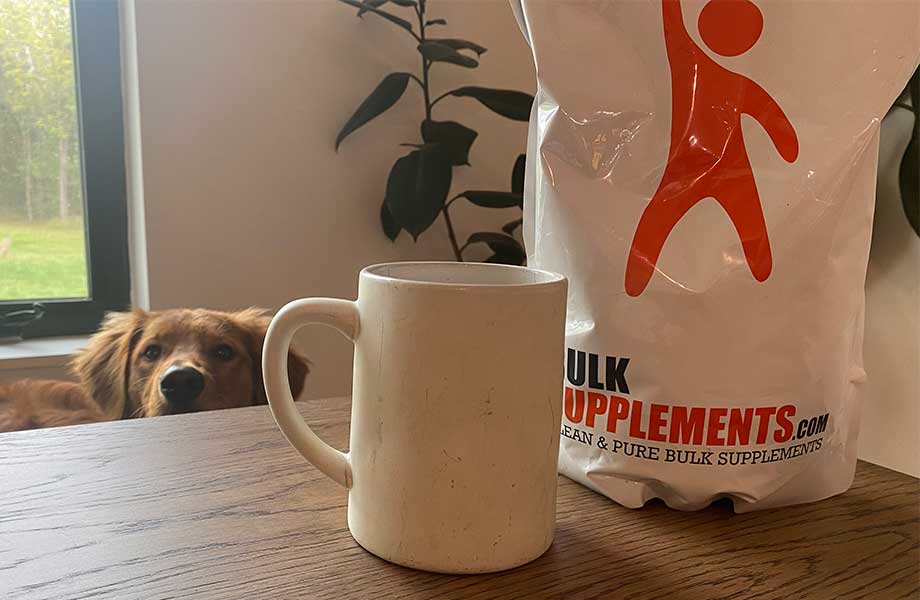
The animal-based amino acids from this protein still means that it has similar effects on muscle protein synthesis in relation to whey, according to research9. It also happens to fit neatly into a paleo diet as it lacks the carb content that some dairy-based protein powders may have.
RELATED: Best Paleo Protein Powder
4. Protein Content
Presently, studies show that the amount of protein needed to maximize muscle growth and prevent muscle loss10 is about 20 grams of protein, which is what one serving of the best protein powders typically have. Anything less isn’t nearly as effective and is also an inefficient way to increase your protein intake without consuming excess calories.
Some highly trained individuals or those with a very large amount of muscle mass may need more, but the exact recommendation can be obtained from a body composition test or consulting with a registered dietitian nutritionist.
5. Calorie Content
Ideally, you want a protein powder with as few excess calories as possible. The exception to this rule is if you are taking a mass gainer or are actively going for weight gain. In that case, protein shakes are actually a great way to use protein powder to meet high-calorie needs; just check the ingredients list to make sure these calories aren’t coming from overly processed sources.
RELATED: Mass Gainer vs Whey Protein
6. Other Ingredients
Especially if you take your protein shakes post-workout, having other ingredients that can work synergistically with protein to help you recover or build muscle can increase the value of a protein powder. For example, studies have shown that having whey protein powder with both creatine and carbohydrates results in better muscle strength and growth11 than protein shakes alone.
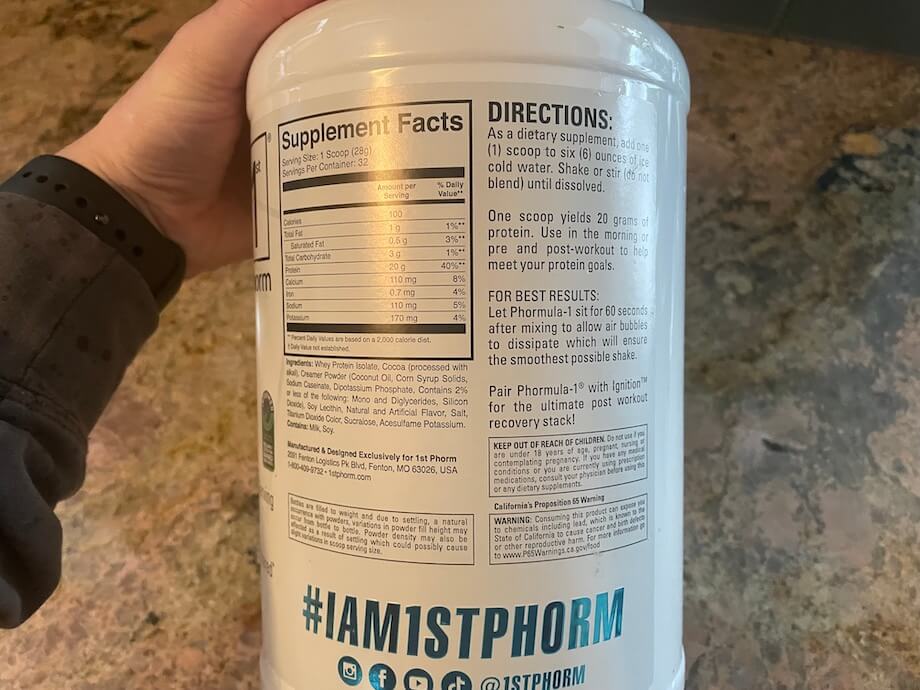
7. Sweeteners
Artificial sweeteners aren’t as bad as the media makes them out to be, but they are widely used in protein supplements to prevent the addition of added sugars and keep calories low while maintaining taste.
If you prefer clean protein without anything artificial, try to find powders made with stevia, a natural, zero-calorie sweetener. No matter what, avoid sugar alcohols as they can cause significant GI distress12 that would hinder anyone’s performance.
RELATED: Best Clean Protein Powder
8. Customer Reviews
Customer reviews are especially important if you order your supplements online rather than in a shop where you can ask questions. Look for reviews from verified buyers, and be wary if they sound too good to be true.
9. Price
Pull out your phone calculator and get into the habit of dividing the total cost of the tub of protein by the number of servings it contains. Be wary if the price per serving is a little too inexpensive, as this is a red flag that it’s possibly full of fillers or low-quality protein concentrate. However, if it is higher in cost (more than $1 per serving), confirm that the amount of protein and ingredient quality ingredients is worth the expense.
10. Taste
If you plan on using protein powder to help boost your daily protein intake, it’s so important to make sure that the taste is something you love that won’t make you nauseous after a week.
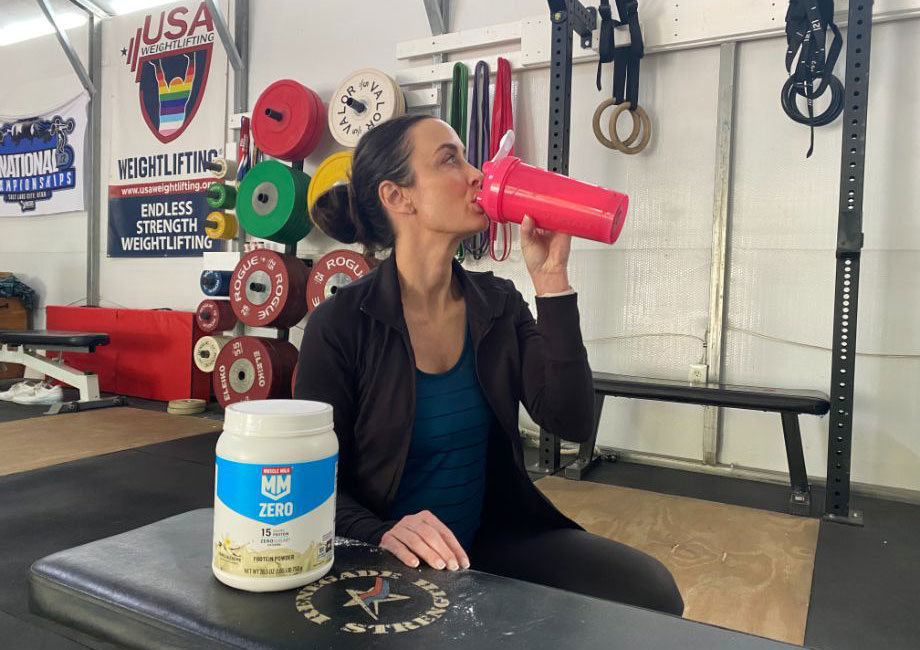
Check reviews, ask for samples, or start with smaller tubs if you’re trying something out. You can also always opt for unflavored and mix it into your food and drinks if you’re sensitive to sweet flavors.
RELATED: Best-Tasting Protein Powder
11. Subscribe-and-Save Programs
Consider going with a company that will auto-ship your monthly supply of protein if you’re one of those folks who tend to forget or want to be certain you can keep the flow of protein shakes consistent. However, if you only use protein sporadically or in small amounts daily, a subscription may not be as ideal.
12. Third-Party Testing
As a sports nutritionist, I never recommend a supplement to my college and professional athletes if they’re not third-party tested. A certification from NSF for Sport, Informed Choice, or other accredited labs is great assurance that the supplement doesn’t contain banned substances that could cause them to fail a drug test and potentially ruin their career.
Even if you are not an athlete, though, third-party tests assure consumers your protein powder actually has the protein content listed on the label and is unadulterated by harmful contaminants, heavy metals, or other toxins.
Contaminants are actually very commonly found in protein powder as they are not regulated by the FDA like other foods. In fact, in 2020, one analysis found that 40% of the protein powders13 tested contained heavy metals, including arsenic, mercury and lead.
What to Look for in Whey Protein Powder
Concentrate, isolate, and hydrolysate are the three forms of whey protein sold. Whey protein concentrate is the cheapest type of protein powder and can contain as little as 35% of actual protein content by weight14.
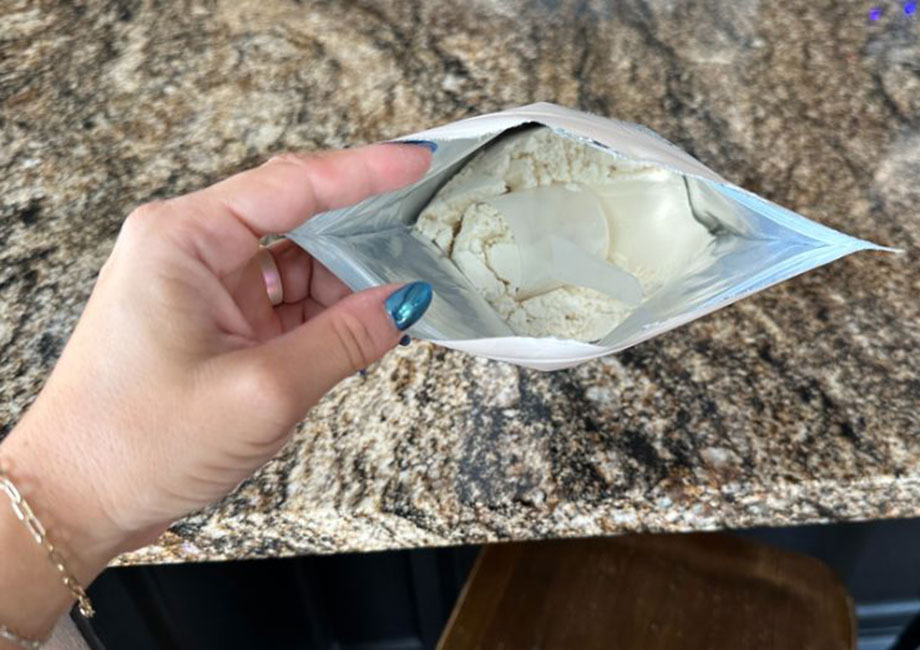
This means there is still a decent concentration of lactose and milk fat in the final product, which is not only a problem for meeting your daily protein needs but also a problem for those with lactose intolerance.
RELATED: Best Lactose-Free Protein Powder
This is why whey isolate is the most popular type of protein powder, as it has been processed to leave 90% of protein by weight. Similarly, whey hydrolysate contains 99% protein by weight and is predigested, to the point that it’s great for those with food sensitivities.
Hydrolysate sounds awesome on paper, but keep in mind, it’s way more expensive than the other two options.
RELATED: Whey Protein Isolate Vs Concentrate: Which Is Best For You?
What to Look For in Plant-Based Protein Powders
Plant-based protein powders may have the essential and branched-chain amino acids you need but won’t have them in the quantities you’ll find in something like whey or egg white protein. So, if you don’t do dairy or follow a vegan diet, you’ll want to look for something, such as a blend of rice and pea protein, that complement each other, as one source can provide the amino acids the other source lacks.
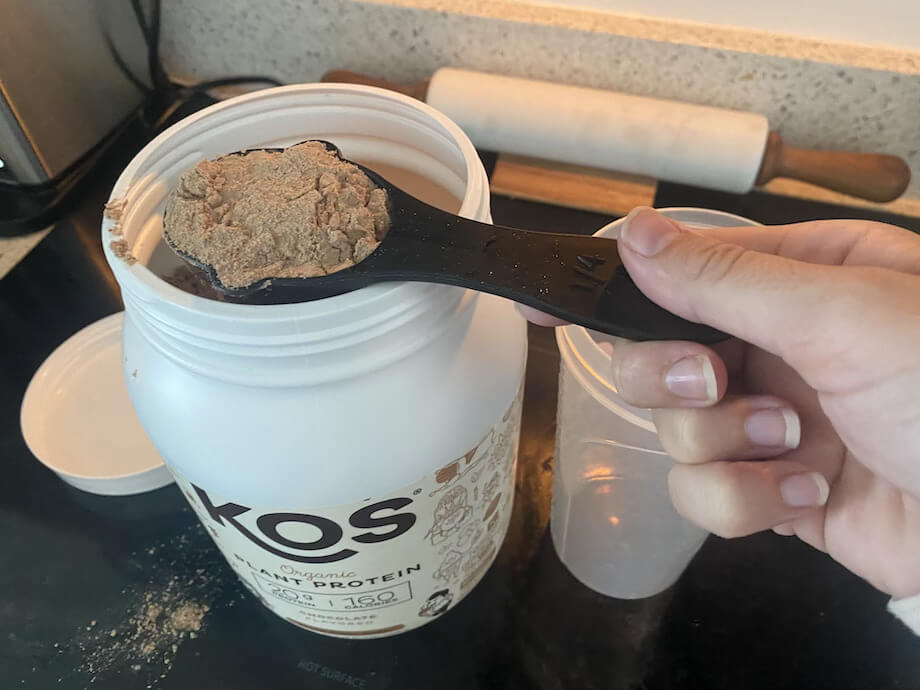
RELATED: Best Pea Protein Powder
What to Look For in Casein Protein Powder
As I previously mentioned, casein is a milk protein that’s slow-digesting nature may make it a unique muscle recovery tool. Since it digests so slowly, it can help you feel fuller for longer. So, casein can also be put to use in protein shakes as a meal replacement and help with either weight loss or to maintain a healthy body weight.
RELATED: Best Casein Protein Powder
What to Look For in Collagen Protein Powder
Your skin, teeth, cartilage, bones, tendons, and cartilage are all made of collagen, a protein that functions as the main component of your body’s connective tissues. Despite the fact that collagen is supplemented by many athletes to potentially help aid in joint health, it is actually very low15 in essential and branched-chain amino acids.
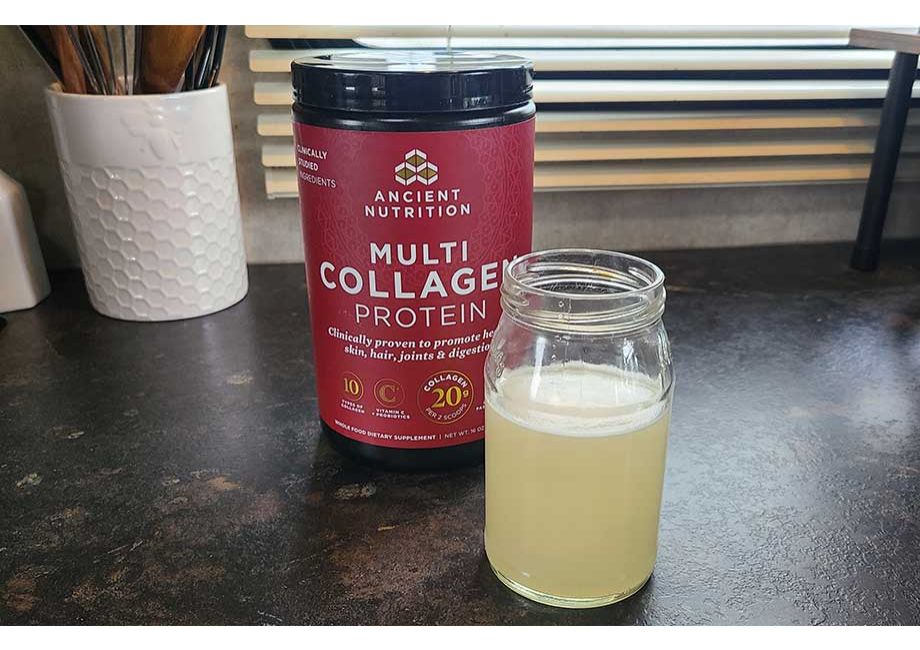
RELATED: Best Collagen Supplements
So, while collagen may be a great addition to your supplementation regimen, you’re better off going with a high-quality protein powder like whey or egg for enough protein to meet your goals.
What’s the Best Protein Powder?
While there is no definitive “best protein powder,” we at GGR have our personal favorites after testing and reviewing some of the most popular brands on the market with our team of registered dietitians and fitness and nutrition professionals.
- Best Overall Protein Powder: Transparent Labs 100% Grass-Fed Whey Protein Isolate
- Best Natural Protein Powder: Legion Whey+
- Best Low-Carb Protein Powder: Jacked Factory Authentic Whey
- Best Tasting Protein Powder: XWERKS Grow
- Best Plant-Based Protein Powder: Ritual Essential Protein 18+
- Best Collagen Protein Powder: Transparent Labs Grass-Fed Collagen Hydrolysate
- Best Protein Powder for Building Mass: Huge Supplements Whey
- Best Protein Powder for Weight Loss: Transparent Labs Casein
- Best Whey Protein Powder: Kaged Nutrition Whey Protein Isolate
- Best Grass-Fed Protein Powder: Momentous Grass-Fed Whey Protein
- Best Protein Powder for Athletes: Onnit Grass-Fed Whey Protein
- Best Organic Protein Powder: Transparent Labs Organic Vegan Protein Powder
- Best High-Protein Protein Powder: Kaged Nutrition Re-Kaged
- Best Unflavored Protein Powder: NOW Sports Nutrition Whey Protein Isolate
- Best Vegan Protein Powder: KOS Vegan Protein Powder
- Best Budget Protein Powder: Optimum Nutrition 100% Gold Standard Whey
- Best Personalized Protein Powder: Gainful
- Best Hydrolyzed Protein Powder: Dymatize ISO100
What to Look for In Protein Powder: Final Thoughts
I’d like to reiterate that protein powder should always be considered a supplement to your daily protein intake, and whole foods should make up the bulk of your diet. However, when using protein powder, knowing which is best for goals like weight gain, weight loss, or muscle growth depends on the source. So, if you want to get the most for your money and ensure you’re consuming a safe product, remember the above criteria.
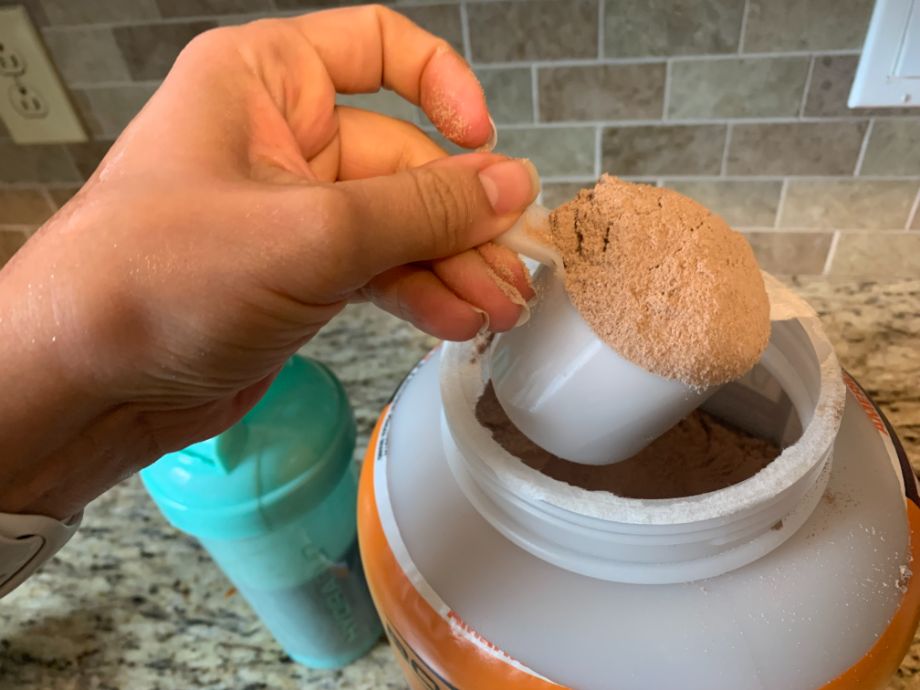
Also, if you have any medical conditions, take prescription medication, or are an athlete, always check with your physician and registered dietitian before you start a supplement to determine your individual protein needs.
What to Look for in Protein Powder: FAQs
What should you look out for in protein powder?
Put simply, look for a protein powder that has at least 20 grams of protein, minimal artificial ingredients, and is from a high-quality source.
How do you know if protein is good quality?
An easy way to tell that a protein is of good quality is if the protein source is the first item on the ingredients list, is reasonably priced without being too good to be true, and contains essential amino and branched-chain amino acids in significant amounts.
What to look for in vegan protein powder?
Ideally, since whey isolate is widely considered the standard for high-quality protein powders, you’ll want to look for a vegan protein powder with an amino acid profile similar to whey, such as a pea and rice protein blend.
These statements have not been evaluated by the Food and Drug Administration. This product is not intended to diagnose, treat, cure, or prevent any diseases.
References
- Church DD, Hirsch KR, Park S, et al. Essential Amino Acids and Protein Synthesis: Insights into Maximizing the Muscle and Whole-Body Response to Feeding. Nutrients. 2020;12(12):3717. Published 2020 Dec 2. doi:10.3390/nu12123717
- Fujita S, Dreyer HC, Drummond MJ, et al. Nutrient signalling in the regulation of human muscle protein synthesis. J Physiol. 2007;582(Pt 2):813-823. doi:10.1113/jphysiol.2007.134593
- Wilborn CD, Taylor LW, Outlaw J, et al. The Effects of Pre- and Post-Exercise Whey vs. Casein Protein Consumption on Body Composition and Performance Measures in Collegiate Female Athletes. J Sports Sci Med. 2013;12(1):74-79. Published 2013 Mar 1.
- Kim J. Pre-sleep casein protein ingestion: new paradigm in post-exercise recovery nutrition. Phys Act Nutr. 2020;24(2):6-10. doi:10.20463/pan.2020.0009
- Babault N, Païzis C, Deley G, et al. Pea proteins oral supplementation promotes muscle thickness gains during resistance training: a double-blind, randomized, Placebo-controlled clinical trial vs. Whey protein. J Int Soc Sports Nutr. 2015;12(1):3. Published 2015 Jan 21. doi:10.1186/s12970-014-0064-5
- Messina M. Soy and Health Update: Evaluation of the Clinical and Epidemiologic Literature. Nutrients. 2016 Nov 24;8(12):754. doi: 10.3390/nu8120754. PMID: 27886135; PMCID: PMC5188409.
- Mobley CB, Haun CT, Roberson PA, et al. Effects of Whey, Soy or Leucine Supplementation with 12 Weeks of Resistance Training on Strength, Body Composition, and Skeletal Muscle and Adipose Tissue Histological Attributes in College-Aged Males. Nutrients. 2017;9(9):972. Published 2017 Sep 4. doi:10.3390/nu9090972
- Puglisi MJ, Fernandez ML. The Health Benefits of Egg Protein. Nutrients. 2022;14(14):2904. Published 2022 Jul 15. doi:10.3390/nu14142904
- Valenzuela PL, Mata F, Morales JS, Castillo-García A, Lucia A. Does Beef Protein Supplementation Improve Body Composition and Exercise Performance? A Systematic Review and Meta-Analysis of Randomized Controlled Trials. Nutrients. 2019;11(6):1429. Published 2019 Jun 25. doi:10.3390/nu11061429
- Stokes T, Hector AJ, Morton RW, McGlory C, Phillips SM. Recent Perspectives Regarding the Role of Dietary Protein for the Promotion of Muscle Hypertrophy with Resistance Exercise Training. Nutrients. 2018;10(2):180. Published 2018 Feb 7. doi:10.3390/nu10020180
- Naclerio F, Larumbe-Zabala E. Effects of Whey Protein Alone or as Part of a Multi-ingredient Formulation on Strength, Fat-Free Mass, or Lean Body Mass in Resistance-Trained Individuals: A Meta-analysis. Sports Med. 2016;46(1):125-137. doi:10.1007/s40279-015-0403-y
- Ruiz-Ojeda FJ, Plaza-Díaz J, Sáez-Lara MJ, Gil A. Effects of Sweeteners on the Gut Microbiota: A Review of Experimental Studies and Clinical Trials [published correction appears in Adv Nutr. 2020 Mar 1;11(2):468]\. Adv Nutr. 2019;10(suppl_1):S31-S48. doi:10.1093/advances/nmy037
- Bandara SB, Towle KM, Monnot AD. A human health risk assessment of heavy metal ingestion among consumers of protein powder supplements. Toxicol Rep. 2020;7:1255-1262. Published 2020 Aug 21. doi:10.1016/j.toxrep.2020.08.001
- Carunchia Whetstine ME, Croissant AE, Drake MA. Characterization of dried whey protein concentrate and isolate flavor. J Dairy Sci. 2005;88(11):3826-3839. doi:10.3168/jds.S0022-0302(05)73068-X
- Zdzieblik D, Oesser S, Baumstark MW, Gollhofer A, König D. Collagen peptide supplementation in combination with resistance training improves body composition and increases muscle strength in elderly sarcopenic men: a randomised controlled trial. Br J Nutr. 2015;114(8):1237-1245. doi:10.1017/S0007114515002810


